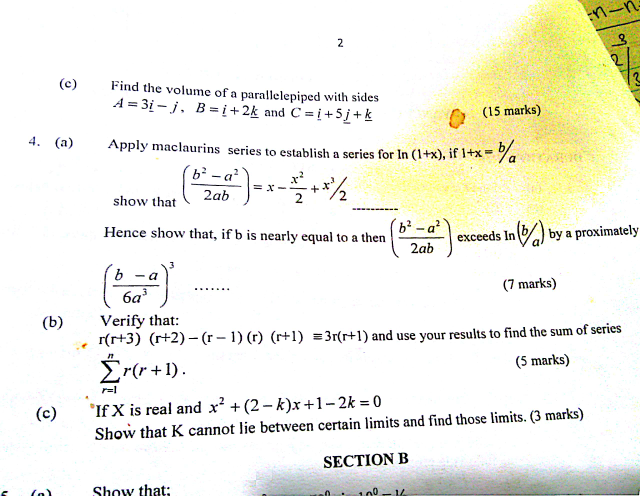
AllQuestion and Answers: Page 1318
Question Number 83266 Answers: 1 Comments: 1
$$\int\mathrm{sin}^{\mathrm{10}} \Theta\mathrm{cos}\:\Theta{d}\Theta\: \\ $$
Question Number 83264 Answers: 1 Comments: 2

Question Number 83262 Answers: 1 Comments: 0

Question Number 83261 Answers: 0 Comments: 1

Question Number 83259 Answers: 1 Comments: 0
$$\int{x}^{\mathrm{9}} \mathrm{sin}\:{x}^{\mathrm{10}} {dx} \\ $$
Question Number 83257 Answers: 1 Comments: 0
$${find}\:{the}\:{derivtive}\:{of}\:{y}=\frac{\mathrm{10}^{{x}} }{{log}_{\mathrm{10}} {x}} \\ $$
Question Number 83255 Answers: 0 Comments: 0
Question Number 83254 Answers: 0 Comments: 1
Question Number 83253 Answers: 0 Comments: 3
Question Number 83252 Answers: 1 Comments: 1
Question Number 83251 Answers: 0 Comments: 1
$${calculate}\:\:\int\:\:{ch}^{\mathrm{2}} \left({x}\right){sin}^{\mathrm{3}} \:{xdx} \\ $$
Question Number 83250 Answers: 1 Comments: 0
Question Number 83246 Answers: 0 Comments: 0
Question Number 83245 Answers: 0 Comments: 2
Question Number 83242 Answers: 0 Comments: 3

Question Number 83240 Answers: 0 Comments: 1

Question Number 83235 Answers: 0 Comments: 2

Question Number 83229 Answers: 0 Comments: 4

Question Number 83226 Answers: 1 Comments: 1
Question Number 83225 Answers: 0 Comments: 1
Question Number 83214 Answers: 1 Comments: 0
Question Number 83213 Answers: 0 Comments: 0
Question Number 83209 Answers: 1 Comments: 0
Question Number 83206 Answers: 0 Comments: 2
Question Number 83205 Answers: 0 Comments: 2
Question Number 83204 Answers: 0 Comments: 1
$$\int_{{t}−\mathrm{1}} ^{{t}} {ln}\left({x}!\right){dx}=? \\ $$
Pg 1313 Pg 1314 Pg 1315 Pg 1316 Pg 1317 Pg 1318 Pg 1319 Pg 1320 Pg 1321 Pg 1322
